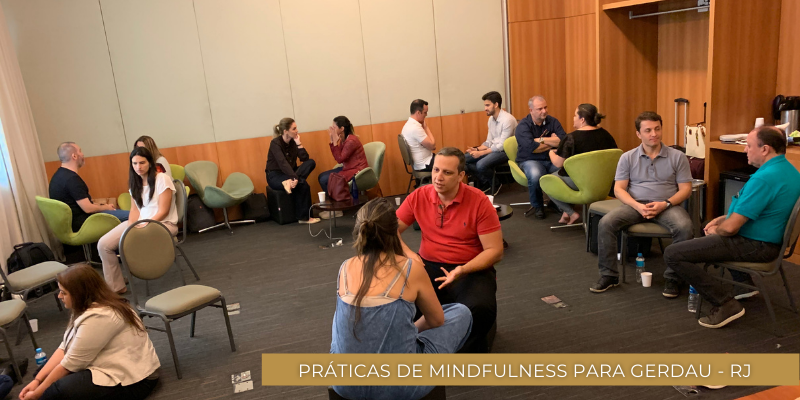Did you know that organizational culture has a direct impact on the lives of employees, who spend a large part of their daily routine immersed in work-related activities?
And that in addition to the culture of each organization, the culture of the country has a significant influence on the way people work, such as working hours, formality in relationships, the way meetings are scheduled, promotion of employees, among other factors?
Alarming data linked to mental health indicates a model that is not sustainable in the long term for employees' quality of life.

In Brazil, there is a strong culture of working overtime, which has a negative impact on the balance between personal and professional life. Generally, excessive hours and work arise from the high demands and competition of the Brazilian market, resulting in attitudes and emotions such as a sense of urgency about deadlines, fear of appearing incompetent or a failure to communicate for fear of asking questions that will be judged.
This work culture in Brazil is reflected in some alarming facts, highlighted mainly by a study carried out by the Brazilian Association of Business Communication (Aberje)*.
These include the fact that more than half of Brazilians suffer from anxiety in the workplace and the fact that 471% of workers feel tired frequently. In addition, 89% of those interviewed consider the lack of empathy within companies to be a problem (CNN Brasil).
The study also revealed that of the ten emotional states most cited by those interviewed, five correspond to feelings linked to unmet needs, the two most identified being anxiety and tiredness, followed by apprehension, discouragement and frustration, explained by a lack of empathy (CNN Brasil).
Also according to the study, employees feel more connected to their coworkers, who are closer to them, than to the company's leadership. According to Pamela Seligmann, a specialist in Nonviolent Communication (NVC) and curator of the study, in order to understand the results of the research it is first necessary to know the concepts of NVC, which is based on listening and empathy with others and with oneself and on identifying needs (CNN Brasil).
"Companies have also neglected quality of life and mental health. In this past year, in which the home office has become established and which, on the one hand, has brought many good things, companies have also invaded the domestic space and many people are failing to take care of their emotional health, becoming disconnected from their needs and in a state of violence," said Pamela (CNN Brasil).
And the alarming data related to mental health in Brazil doesn't stop there. Despite being known as the country of joy, Brazil is also the country with the highest rate of anxiety in the world and the 5th country with the highest number of people suffering from depression. It is also the country with the 2nd highest number of Burnout cases, according to ISMA-BR (International Stress Management Association).
In this review of the topic of mental health, Burnout Syndrome, caused by chronic stress at work and resulting in physical and emotional exhaustion, became classified as an occupational disease in January 2022, following its inclusion in the International Classification of Diseases (ICD) of the World Health Organization (WHO).
This means that workers are entitled to sick leave - paid by the employer for a period of up to 15 days - stability and in more serious cases - a period of leave of more than 15 days, the employee will be entitled to social security benefits paid by the INSS, called accident sickness benefit - and even disability retirement (G1 Brasil, Trabalho e Carreira).

A powerful tool that can be applied in organizations to increase the emotional intelligence of leaders and consequently of their teams is a Mindfulness program.

Mindfulness, according to Jeremy Hunter, is the concentrated observation of our perceptions, thoughts and emotions in the present moment, with an attitude of equanimity, curiosity, openness and acceptance. It has already been scientifically proven that practicing Mindfulness alters neural pathways and responses to experiences. It is possible to strengthen areas of the brain associated with self-regulation of emotions, attention and concentration, abstract thinking and memory.

Are you interested in applying Mindfulness in your organization? Contact us to learn about the possibilities and promote mental health for your employees!
www.flowoflife.co
contato@flowoflife.builderallwppro.com




